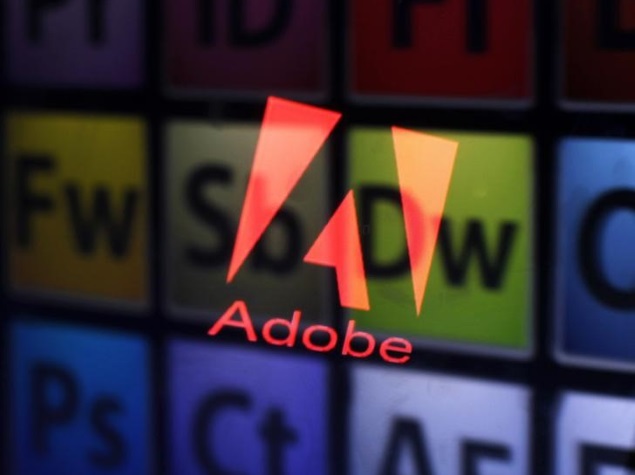- Home
- Internet
- Internet News
- Adobe and Google Partner to Bolster Flash's Defence Against Zero Day Attacks
Adobe and Google Partner to Bolster Flash's Defence Against Zero-Day Attacks

But this isn't a regular security patch, Adobe notes. The company says that with the help of Google's security research team, it has managed to make structural changes to the way its program interacts with an operating system. The changes, Adobe claims, will significantly reduce the number of attacks against Flash Player.
One of the key changes the company made to Flash was to isolate different types of memory contents, which prevents them from interacting with each other. It did so by introducing a new partition to the heap, chunk of memory that's allocated to programs at run time. Another thing the company has introduced in Flash is the requirement to possess a validation key before any changes could be made to Vector objects - the go-to destination for hackers. The company has explained all the changes in depth via a blog post.
The patch is live in the Flash version dubbed v18.0.0.209 in Google Chrome, which started to seed late last week. You can check the Flash version inside the Chrome installed on your machine by visiting about:version inside the browser. If the Flash version isn't up to date, you can manually update your browser. You can do so by visiting chrome://chrome.
If the operating system installed in your computer is of 64-bit architecture, the company advises you to install the 64-bit build of Chrome, as in it, there are more memory addresses. "It's worth noting that this defence is much more powerful in a 64-bit build of Flash, because of address space limitations of 32-bit processes," it notes.
"It's a cat-and-mouse-game, but we'll be looking out for attackers' attempts to adapt, and devising further mitigations based on what we see," Google researchers note in the blog post. "Perhaps more importantly, we're also devising a next level of defences based on what we expect we might see. Our partitioning mitigation is far from finished. We'll be analysing object types to see what else might benefit from partitioning, and moving forward incrementally."
While it's a welcome move, at this point there is no guarantee whether tech giants will show any mercy towards Adobe's media player. The likes of Mozilla have already blocked Flash from some of their flagship products and services. Earlier this month, Facebook's new chief security officer announced that he wants to "set a date to kill Flash for once and all."
Get your daily dose of tech news, reviews, and insights, in under 80 characters on Gadgets 360 Turbo. Connect with fellow tech lovers on our Forum. Follow us on X, Facebook, WhatsApp, Threads and Google News for instant updates. Catch all the action on our YouTube channel.
Related Stories
- Samsung Galaxy Unpacked 2025
- ChatGPT
- Redmi Note 14 Pro+
- iPhone 16
- Apple Vision Pro
- Oneplus 12
- OnePlus Nord CE 3 Lite 5G
- iPhone 13
- Xiaomi 14 Pro
- Oppo Find N3
- Tecno Spark Go (2023)
- Realme V30
- Best Phones Under 25000
- Samsung Galaxy S24 Series
- Cryptocurrency
- iQoo 12
- Samsung Galaxy S24 Ultra
- Giottus
- Samsung Galaxy Z Flip 5
- Apple 'Scary Fast'
- Housefull 5
- GoPro Hero 12 Black Review
- Invincible Season 2
- JioGlass
- HD Ready TV
- Laptop Under 50000
- Smartwatch Under 10000
- Latest Mobile Phones
- Compare Phones
- OnePlus 15R
- Realme Narzo 90x 5G
- Realme Narzo 90 5G
- Vivo S50 Pro Mini
- Vivo S50
- OPPO Reno 15c
- Redmi Note 15 5G
- Redmi Note 15 Pro 5G
- Asus ProArt P16
- MacBook Pro 14-inch (M5, 2025)
- Infinix Xpad Edge
- OnePlus Pad Go 2
- OnePlus Watch Lite
- Just Corseca Skywatch Pro
- Acerpure Nitro Z Series 100-inch QLED TV
- Samsung 43 Inch LED Ultra HD (4K) Smart TV (UA43UE81AFULXL)
- Asus ROG Ally
- Nintendo Switch Lite
- Haier 1.6 Ton 5 Star Inverter Split AC (HSU19G-MZAID5BN-INV)
- Haier 1.6 Ton 5 Star Inverter Split AC (HSU19G-MZAIM5BN-INV)

















